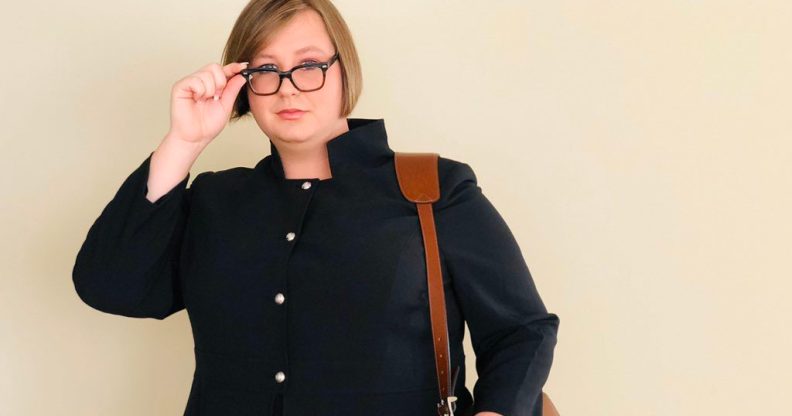Trans woman made homeless as a teen becomes the first-ever transgender woman Rhodes Scholar

Hera Jay Brown is the first trans woman to become a Rhodes scholar after 117 years. (Hera Jay Brown/ Twitter)
A trans woman who was made homeless as a teenager after she was kicked out by her family will be the first ever transgender woman to become a Rhodes Scholar.
The Rhodes Scholarship is the oldest international scholarship programme in the world, and since 1902 it has offered students from around the world postgraduate scholarships at the University of Oxford. 32 students from America are chosen each year.
Hera Jay Brown from Corryton, Tennessee, will next year become the first trans woman Rhodes Scholar in the programme’s 117-year history. She was forced to move to Arizona when she was 17 years old after her family kicked her out because of her gender identity.
Her experience of losing her home led her to develop an interest in forced migration and during her undergraduate degree at the University of Tennessee she focused on the experiences of Syrian refugee workers.
She told NBC: “I remember growing up with a loving, supportive family, with a stable reality and having all that kind of yanked away in an instant.
“I know what it’s like to lose a home. I know what it’s like to be blocked from access to medical care and what it means to physically leave the place you’ve always known, and that’s become a rallying point for me to connect and learn with people who’re facing this and to look deeper into the kind of social structures that allow for people to be displaced.”
https://twitter.com/herajaybrown/status/1198643047325720578
Applicants for the Rhodes Scholarship are chosen based on academic ability, leadership skills and willingness to help others. Brown said becoming a Rhodes Scholar “shows that we as trans women have contributions to offer”.
She added: “Knowing that this is a form of validation, not only for my work but my legitimacy and the legitimacy of my community is breathtaking.”
Although Brown is the first trans woman to be awarded the scholarship, two other trans people have previously become Rhodes scholars and Brown will be joined by two non-binary scholars from this year’s US applicant pool.

